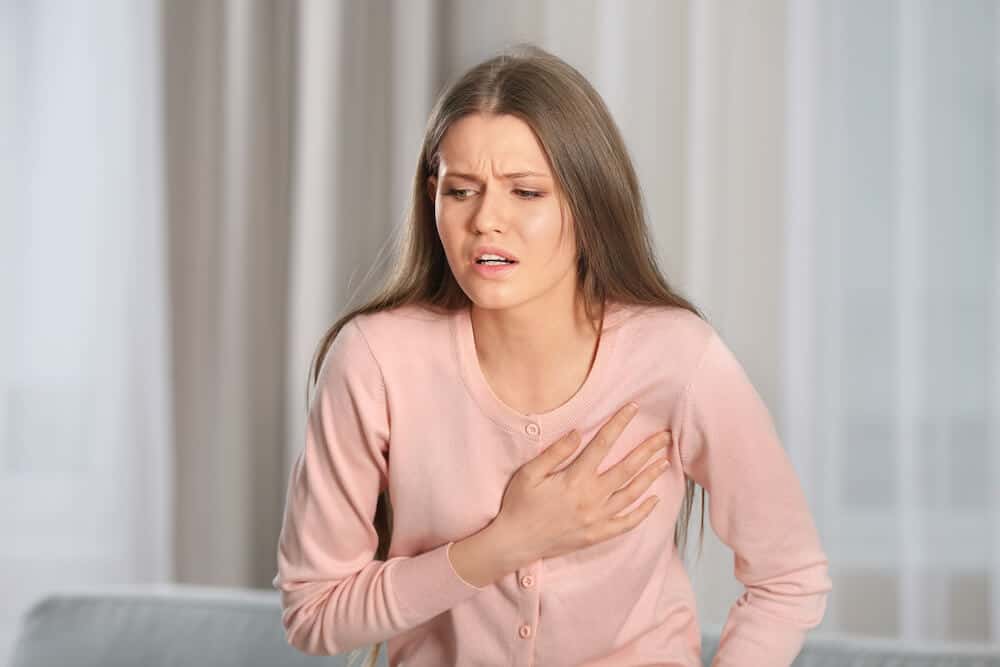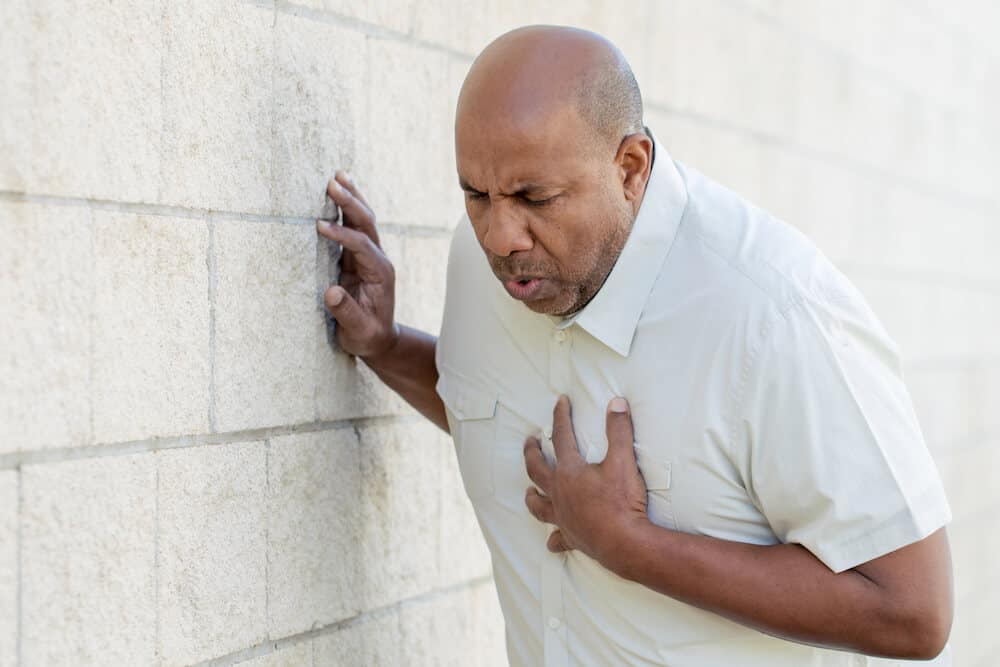Suddenly you feel intense fear for no particular reason. Nausea overwhelms you. You are sweating excessively. Your breathing is rapid and your heart races. The intensity of your feelings paralyse you. And, before you know it, it is all over. What has just happened? Have you had an anxiety or a panic attack?
It can be difficult to differentiate between the two. And most people do not understand what it means to suffer from anxiety or to panic. It can be so difficult suffering with these conditions. But, did you know, there is a difference between a panic and an anxiety attack? The two terms are often used interchangeably though they are two distinctly different conditions.
Differences Between Anxiety and Panic Attacks
Experiencing an anxiety or panic attack is an unpleasant experience. While they are different, they have common elements.
The biggest difference between the two is how long they last. An anxiety attack is less intense than a panic attack but can last longer. For hours or even days at a time. Normally you can continue going about your day with little disruption with the anxiety stuck in the background.
A panic attack comes out of the blue quickly and it ends just as fast. But it is severely disruptive. You have to stop what you are doing when a panic attack hits you. You will not be able to focus on anything other than the fear and how your body reacts to the situation. They do not last very long so you can usually go back to what you were doing when it ends.

Panic Attacks
Panic attacks come out of the blue although it may be in response to underlying stress or anxiety. They usually hit suddenly and you will feel intense, overwhelming fear. It will make it difficult to function. Other symptoms include shortness of breath, nausea or a racing heart.
While a panic attack is not triggered by a stressful situation, there are also expected panic attacks. These occur when there is an external trigger such as seeing a snake when you have a snake phobia.
Panic attacks can occur at any time and affect anyone.
Panic attacks:
- Are incredibly intense.
- Usually last for up to 30 minutes and rarely for more than an hour.
- Are a recognisable condition that is usually part of having a panic disorder.
- Can happen on their own or as part of an anxiety disorder such as a specific phobia, general anxiety or social anxiety.
- Usually have at least four symptoms occurring at the same time.
- Can happen once or they may happen again.
- Occur suddenly and the symptoms reach their peak within the first few minutes of the attack.
- Can be caused by underlying anxiety but usually do not occur when feeling stressed or anxious.

Anxiety Attacks
An anxiety attack is the result of high levels of anxiety where the anxiety escalates in intensity triggered by either real or perceived external or internal stresses. The anxiety build up becomes so overwhelming it feels like an attack. There is little recognition in diagnosing anxiety attacks but that does not mean they do not occur. It means anxiety attack symptoms are open to interpretation.
An anxiety attack:
- Is not a recognised condition but rather a term used for feeling increasingly anxious and can be a symptom of an anxiety disorder.
- Starts slowly and increases with the build-up of worry and stress.
- Is often overwhelming.
- Can have some physical symptoms but is more likely to be thought-based.
- Can be in response to real or perceived stress triggers.
Anxiety and Panic Attack Symptoms
Anxiety and panic attacks can feel similar as they share some of the same symptoms and you can experience a panic and anxiety attack at the same time. For example, you may be worrying about a situation that can be potentially stressful such as attending a social outing. And, when you do attend the social outing, the anxiety turns into a panic attack.
| Symptom | Anxiety Attack | Panic Attack |
| Fear | Yes | Yes |
| Feeling apprehensive and worried | Yes | Less likely |
| Fear of dying or losing control | Less likely | Yes |
| Excessive worry | Yes | Sometimes |
| Difficulty concentrating | Yes | Less likely |
| Restlessness | Yes | Less likely |
| Feeling detached from yourself or the world | Less likely | Yes |
| Fear of losing control or going crazy | Less likely | Yes |
| Shortness of breath and/or difficulty breathing | Yes | Yes |
| Dizziness | Yes | Yes |
| Nausea or abdominal discomfort, upset stomach | Less likely | Yes |
| Muscle tension | Yes | Less likely |
| Feelings of unreality | Less likely | Yes |
| Trembling or shaking | Less likely | Yes |
| Easily startled | Yes | Less likely |
| Increased heart rate and/or a pounding heart | Yes | Yes |
| Chest pain | Sometimes | Yes |
| Feeling lightheaded, unsteady, or faint | Less likely | Yes |
| Chills | Sometimes | Yes |
| Hot flashes | Sometimes | Yes |
| Excessive sweating | Sometimes | Yes |
| Irritability | Yes | Less likely |
| Feeling like you are choking | Sometimes | Yes |
| Numbness or tingling sensations | Sometimes | Yes |
| Distress | Yes | Less likely |
| Headache | Yes | Yes |
| Dry Mouth | Yes | Yes |
| Fatigue | Yes | Less likely |
| Disturbed sleep or sleeplessness | Yes | Less likely |
How to tell if you Experience an Anxiety or Panic Attack
It can be difficult to know whether you are having a panic or anxiety attack. So here are some things to help you:
- When having a panic attack, your flight-or-fight response takes over. Also you will have more intense physical symptoms than you would if it was an anxiety attack.
- Panic attacks come on suddenly out of nowhere and anxiety attacks slowly build in intensity.
- Anxiety is usually in relation to something you perceive as threatening or stressful. Normally panic attacks do not have a trigger and occur suddenly without warning unless it is a reaction to a phobia.
- You can have mild, moderate or severe anxiety. It can happen subconsciously while going about your normal day. Panic attacks usually have symptoms that are severe and disrupt what you are doing.
- A panic attack will trigger fear or worry about having another one. This can affect how you behave which can cause you to avoid situations and places you think may cause another panic attack.

Triggers and Risk Factors
There are triggers and risk factors for anxiety and panic attacks. Once you understand these you can prepare yourself.
Panic and Anxiety Attack Triggers
Panic attacks that come out of nowhere have no identifiable triggers. Anxiety attacks have similar triggers to an expected panic attack such as:
- Withdrawing from drug or alcohol use.
- Driving in traffic or long distances.
- A job that is stressful on an ongoing basis.
- Caffeinated products.
- Problems with your thyroid.
- Experiencing chronic pain.
- Being in social situations.
- Phobias such as the fear of heights, small spaces or crowded or open areas.
- Chronic illness.
- Reminders or memories of a trauma.
- Taking medications or supplements.

What are the risk factors?
Some people are more prone to anxiety or panic attacks than others and they both have similar risk factors:
- Witnessing or experiencing a traumatic event at some stage during your life.
- Experiencing a life changing stressful event such as a divorce, the death of someone you love or a job loss.
- Dealing with another mental health disorder such as depression.
- The use of alcohol, smoking or drugs.
- Can be genetic where you have close relatives who have panic or anxiety disorders.
- A personality that is predisposed to anxiety.
- Diagnosed with a life-threatening or chronic health condition.
- Living with ongoing worry and stress such as your job, family conflict or financial struggles.
- Women are more likely to experience a panic attack than men.
When you experience anxiety, you are more at risk of a panic attack though being anxious does not mean you will have a panic attack.
Tips to help you cope
If you feel you are experiencing a panic or anxiety attack, talk to your doctor. There are things that can help you deal with the symptoms. There are also things you can do when you are losing control. If you feel like a panic or anxiety attack is coming, try the following:
- Mindfulness meditation. Mindfulness meditation is great for helping you cope with anxiety and panic attacks. It helps you focus your thoughts in the moment. Mindfulness helps you find inner peace which can help your overall wellbeing. Download my free mindfulness audio to meditate to.
- Slow down your breathing. When you feel your breathing speed up, focus on your breathing to slow it down. Take slow breaths and focus on inhaling and exhaling. See the air filling your lungs and stomach slowly while breathing in to a count of four. And count down from six as you slowly exhale. Continue this until your breathing slows down naturally.
- Try relaxation techniques. Try using relaxation techniques such as aromatherapy, take a bath, use lavender oil or do something you find relaxing when you feel a panic or anxiety attack coming on.
- Recognise what is happening. When you have experienced a panic or anxiety attack in the past, recognise what is happening. Remind yourself the symptoms will pass. While it can be scary, you will be okay.
- Make lifestyle changes. There are many things you can change in your life to help reduce anxiety and panic attacks from occurring:
- Turn negative thoughts into positive ones.
- Reduce or manage the amount of stress in your life.
- Limit your alcohol, caffeine, nicotine and drug consumption.
- Eat a good, well-balanced diet and limit junk food.
- Create good sleep habits.
- Join a support group.
- Seek help. Talk to a family member or friend, a medical professional or anyone else that you trust about how you are feeling.

Do you suffer from anxiety or panic attacks?
While anxiety and panic attacks have similar symptoms, triggers and risk factors, they are not the same. Panic attacks are more intense, have more severe physical symptoms and last only a short time compared to an anxiety attack. An anxiety attack can last several hours or days and the symptoms are more emotional than physical.
Now you know there is a difference between anxiety and panic attacks, which one affects you? If you are experiencing anxiety or panic attacks, there is help.
We are here to help
Overcoming anxiety and panic attacks can be tough. Even when you have support, you may feel people do not really understand or it is not enough. And even if you are taking medication, sometimes you need something more. If you are struggling, consider reaching out. When you are not coping, contact us to find out how we can help get your life back on track. But, if you reach crisis point, call us immediately. We are here to support you through a crisis and can help you quickly deal with things better.
We can work with you over the phone, via Skype or in our Spas. Book in today for my Emotional Empowerment Program. I have an introductory offer for just $79 so you can start taking back control of your life. We can support and help you cope with the challenges of anxiety or panic attacks. With our help, you can soon reduce the anxiety and look forward to a future filled with happiness and joy.
Let me help stop the effects of mental health issues
My Emotional Empowerment Program has helped many people like you deal with stress, anxiety and depression for more than a decade. We can help you move through and deal with stress, depression and anxiety which can be the root cause of mental health issues. I can help you replace these with happiness, peace and contentment in weeks not years so you can see a positive future. Listen to what Julia has to say about my program after only a few sessions.

